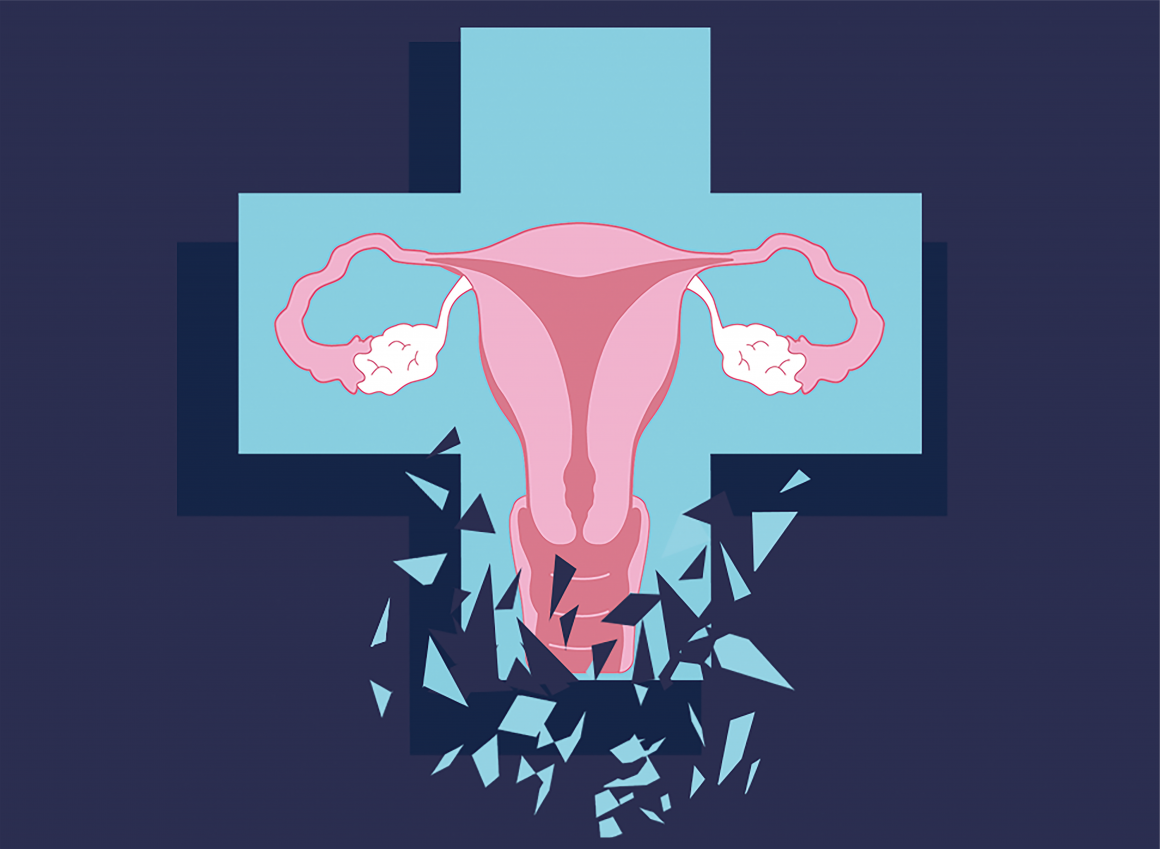
Negotiations with a hostile uterus
By Reyam Jamaleddine, October 25 2023—
This piece could begin with an acknowledgment of the silent and isolated battle of fighting periods and their unwavering pain, yet up until now, in my experience that would be a misinterpretation of reality. The reality is that the menstrual cycle accomplishes the creation of a strong sense of empathy and compassion. Each and every single human being who has a uterus and ovaries withstands this cycle every month. Because of the fact that periods touch each and every single person born a female, it is recognized as a mere inconvenience. This is far from the truth, biologically women have been burdened with monthly suffering.
Women have triumphed in their ability to assist each other each and every single month during this egregious week. Small gestures and condolences that women give to each other provide a telepathic message of, “I know exactly how it is.” It empowers us to collectively corroborate and acknowledge that the menstrual cycle does indeed cause suffering. Periods are painful and although they are natural — they are borderline inhumane. Regardless of the levels of suffering that those with uterus and ovaries endure, there is a strong sense of neglect for those of us who bleed.
In all recollections of history, women have suffered the consequences of their reproductive organs, which generates substantial questions about why there have not been any legitimate solutions to the pain or the dysmenorrhea that the menstrual cycle causes. The lack of effectiveness for what is currently available for women in combating and managing this pain is not a reflection of the advancements that have been made in recent health history. Over-the-counter medications such as Ibuprofen and hot packs have limitations and inadequacies in their mitigation of physical pain. It is also imperative to address that these medications also have no effect on the psychological effects that happen as hormones radically change every single month. Mood swings, premenstrual syndrome and a strong sense of depression that women face every month can have similar levels of suffering that the physical pain causes.
Furthermore, there have been no new discoveries for alleviation or solutions for women who suffer from ovarian cyst ruptures, ovarian torsions, endometriosis, uterine fibroids or even uterine and ovarian cancer.
It could be that historically women have silently endured their dysmenorrhea due to shame and taboo. The historical context of the isolation of women and their biological needs being maintained far away from mainstream society has created a slow adaptation away from shame, causing a lack of urgency for the solution of these grave issues. Although the awareness that is more becoming of is gradually gaining momentum, it still requires a strong sense of urgency to transcend into real action and solutions.
A temporarily established yet very effective method has been the birth control pill. It relieves the majority of the pain and aids bleeding levels while maintaining hormonal imbalances. Yet, birth control is a political point of discussion where the medication’s stability of availability is insecure. The taboo of the birth control pill alongside misinformation has invalidated the medication’s effectiveness. For these reasons, this medication has not been able to break society’s status quo on viewing women’s reproductive systems and their serious causes of suffering.
In my experience, period pain has had a tremendously daunting effect on my day-to-day life. Oftentimes, it seems as if the pain is too much for my body to handle, bringing about a serious questioning of the lack of support for women who suffer likewise to myself. All the women that I have been surrounded by voice their pains and their struggles with this syndrome. This allows us to recall that the monthly suffering is not a silent one and something that everyone is aware of.
Not only does it cause extreme levels of pain physically and mentally, it continues to have a dramatic level of damage to a woman’s economic and academic career. I find myself continually skipping out on days of school, work days and social events due to the pain that the menstrual cycle overloads me with. New information about this level of suffering not being normal has become a sort of factoid, yet decreased levels of normalization have not been established in conventional society. Being aware that it is not normal, still I spot women enduring their pain and attending school and work while being in severe pain.
There is a great deal of expectation and hope for what is to come in the near future. Social media platforms have largely provided platforms for healthcare professionals to provide information to broad audiences. This not only provides important information for viewers, but it allows the sense of urgency for research and solutions to embark.
Women through all their suffering have never lost hope and will certainly continue to be the main supporters and hearth for all women alike.
This article is a part of our Voices section and does not necessarily reflect the views of the Gauntlet editorial board.
